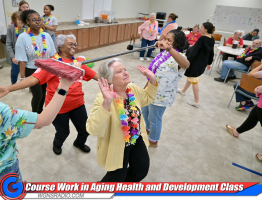Abby entered this world weighing about 6 pounds with a head full of soft brown hair - and cocaine pumping through her veins. Her first day of life was filled with the pain of withdrawals.
Her mother, only 19, hadn't planned to get pregnant. She was addicted to cocaine and had no stable housing.
Little Abby spent most of the day in a pack'n'play in front of a TV. While she never went hungry, she was bounced around from friend to friend.
Most of the time, when she cried, no one came to comfort her. No one counted her toes, no one cared if she laughed, no one kissed her goodnight, and no one held her when she was sick. Abby wasn't physically abused--she was neglected.
When thinking about child abuse, we often think of broken bones or black eyes, the often easy to detect signs of abuse. However, 62% of child abuse cases reported in the state are considered neglect. This common form of abuse is not as easy to spot and it may be harder to understand how the effects can have a heavy impact on a child for the rest of his or her life. Abby looks ok from the outside, but this child is missing the attention she longs for and so desperately needs for crucial brain development.
Like the construction of a house, a child's brain is built from the ground up. The brain is no different. A person's foundation for lifelong social, emotional and even physical health is created in childhood. Rapid brain development happens in the early years of life. In fact, children form 700 neuron connections per second, which means every second counts for brain building.
In a healthy parent-child relationship, a parent touches, talks, reads and plays with their child. When a child cries or is scared, the parent comforts and reassures. The early years are also a critical time for social development, language and learning, emotional health and even physical health. Brains are literally built on consistent, nurturing interactions.
Imagine the brain of a child that has been talked to, read to, held and hugged. Now, imagine the brain of Abby, a child who has only made connections based off of her time spent in a pack'n'play in front of a television. Those essential neural connections are far fewer in Abby's brain than the brain of a nurtured child.
Statement from the Family Center in Rutherford County:
Why does Abby's story matter to you? We know that childhood adversity contributes to our countries leading diseases. We also know that trauma inside the home affects the child's health and over all well-being for the rest of his or her life. Child neglect does not only affect the victim but all Tennesseans, compromising quality of life, safety, and tax dollars.
The Family Center is a 30-year-old, private, nonprofit child abuse prevention agency. The center provides high quality, research-based parent education services in Rutherford and Davidson counties for families and children who are living in abusive or potentially abusive situations. The Family Center is a licensed Tennessee Child Abuse Prevention Agency and a Certified Divorcing Parenting Agency. The center has earned the highest level of accreditation, AAA, from the National Exchange Club Foundation.












